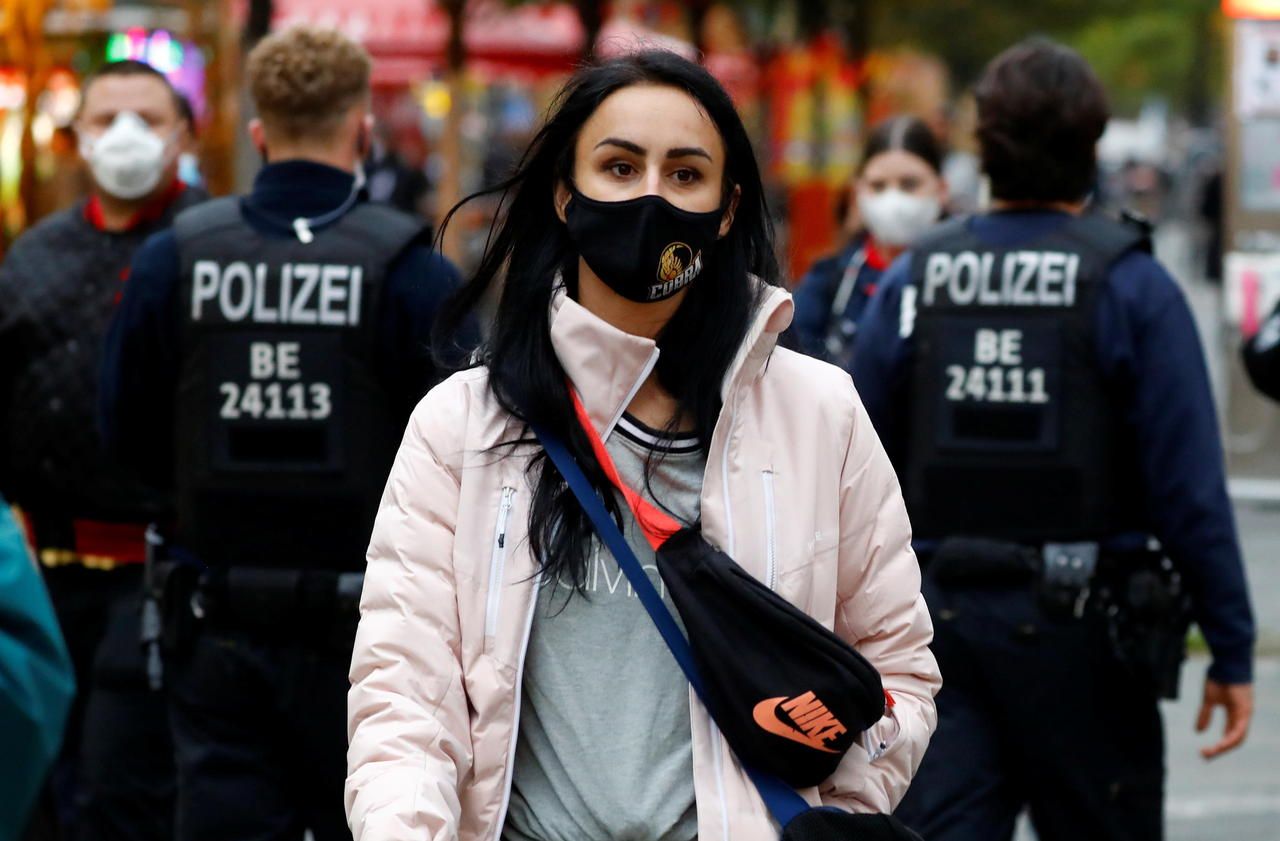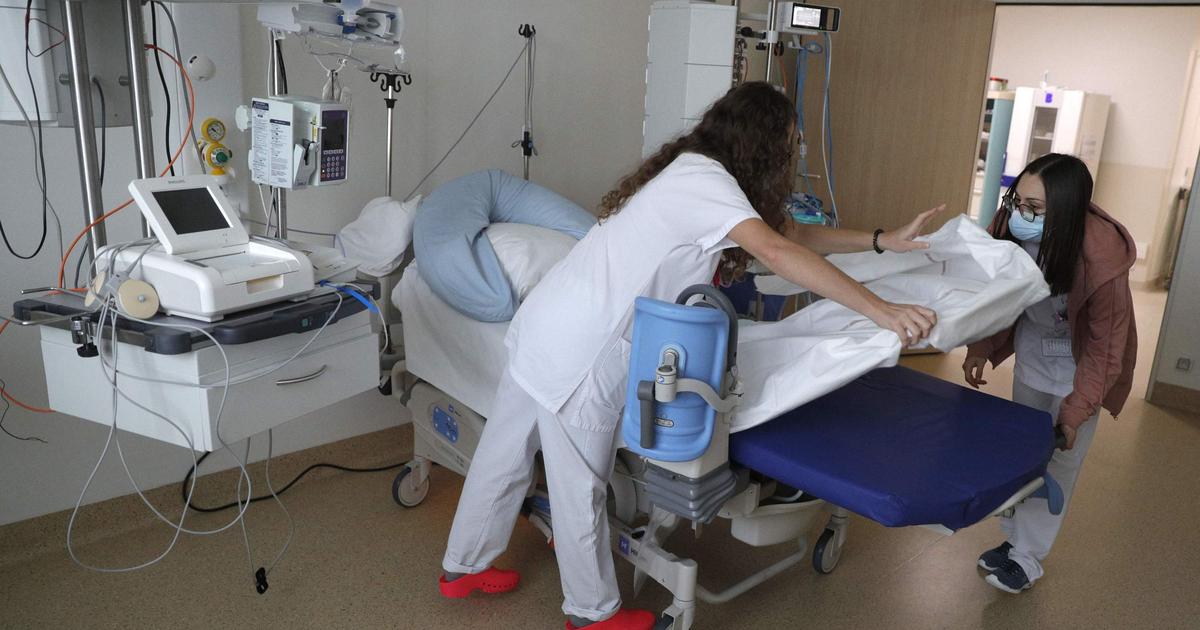But how is Germany doing?
“Excellent question!
Admits epidemiologist Antoine Flahault.
As in the first wave, our neighbor gives the impression of having better control of the second, this fall.
We can judge: with just over 10,000 cases per day on average and 10,000 deaths since the start of the pandemic, Germany is five times less affected than France when these figures are reported to the population. .
The number of patients in intensive care is also more than half as high.
The epidemic is starting again, of course, but in proportions - for the moment - much less severe than in France, Spain, the United Kingdom or Italy.
Better understood local decisions?
So how do you explain it?
Several hypotheses are put forward, but none really emerges.
The fact that the population would respect the measures better often comes up in the discussions.
In Germany, as in France, there is, for example, only one “recommendation” not to meet too many in private places (the gauge depends on the level of the epidemic in the region).
“Decisions are made a lot at the local level.
I have the impression that they are therefore better understood, better accepted and better applied, particularly in private and personal life, ”testifies Vincent, a 36-year-old Frenchman who lives in Essen (North Rhine-Westphalia) , in the north-west of Germany, and from time to time in France.
However, "the main determinant of the spread and the dynamics of the epidemic is the behavior of people", points out epidemiologist Pascal Crepey.
A new turn of the screw is being prepared
The reverse of this decentralization which allows the regions to take anti-Covid-19 measures, certain contradictory decisions have been able to give the impression of a big mess and a cacophony.
The passage of certain cities in the red zone with curfew, at the beginning of October, forced many Germans to cancel their holidays at the last moment.
But the restrictions are also, in some cases, taken more early than elsewhere.
At the end of August, considering that “this increase in the summer months should be taken particularly seriously”, a draft agreement had recorded the extension of the ban on the public in stadiums, cultural places, festivals or fairs, until the end of the year.
At the end of October, Angela Merkel is already in favor of a kind of "light confinement", including providing for the closure of bars and restaurants, reports the German press.
"We must now take decisions quickly and decisively in order to break this second wave of infection", has already warned the Vice-Chancellor, Olaf Scholz.
VIDEO. Coronavirus: Merkel warns Germans of 'even more difficult' times in autumn
Discussions with regional leaders, scheduled for Friday, have also been brought forward to this Wednesday.
The aim of this turn of the screw is "to quickly interrupt the dynamics of the infection so that no large-scale restrictions are necessary with regard to personal contact and economic activity during the Christmas season", is it written in the draft agreement.
Two people per household on average
On the other hand, Germany could benefit from having few large families.
The average household size is two people there and only 3.4% of households have five or more, compared to 5.4% in France.
On these two indicators, the country is last in the European peloton, according to official data.
Newsletter - Most of the news
Every morning, the news seen by Le Parisien
I'm registering
Your email address is collected by Le Parisien to enable you to receive our news and commercial offers.
Learn more
“There are some details that may be different compared to southern Europe.
Our households are often smaller, we have more households of a single person ”, pointed out the prestigious virologist Christian Drosten, quoted by the Tagesspiegel on September 18.
Still concerning the way of life and consumption, "the car is king and people use it a lot, there is often less public transport", also advances Vincent.
However, transport could be important places of propagation of the virus because of the promiscuity, even if it is difficult to know where one is infected.
READ ALSO>
Covid-19: “Japanese-style” tracing, the method that would allow us to know where we are infected
Antoine Flahault also points to "something emblematic and which shows great agility on the part of Germany".
And to explain: "They were the first to recognize the aerosol route of transmission of the coronavirus and they decided to invest in ventilation systems in closed places, which is potentially very interesting", details the director of the 'Institute of Global Health of Geneva.
The ventilation of rooms was already very applied in normal times out of habit in Germany.
From the end of September, Angela Merkel in a way formalized it as being a barrier gesture as important as the others, more classic (hand washing, physical distancing, etc.).
Nonetheless, if Germany fails to “break the curve” or at least curb the dynamics of the epidemic, it could end up reaching levels currently seen elsewhere. Christian Drosten also warned: “There are certainly differences [with other European countries] but […] we have to be very careful and watch very closely what is happening now. As in France, the situation is of course not uniform across the Rhine, the west of the country being much more affected than the east. Thomas, another Frenchman living precisely in one of the most affected regions, already fears: “There are perhaps two weeks behind France but the bulk of the wave will arrive here too. "















